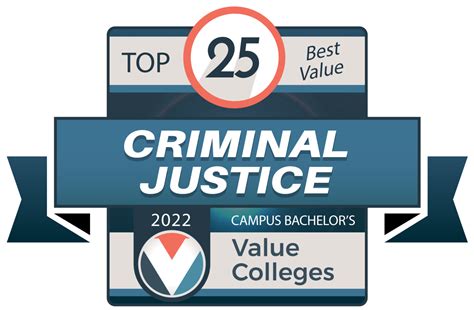Are you fascinated by crime and the criminal justice system? Are you considering a career in law enforcement, criminology, or legal studies? If so, you may be interested in exploring the various criminal justice programs offered at universities across the United States. From the core curriculum to specialized electives and hands-on training, there is a wide array of options to consider when pursuing a degree in this field. In this blog post, we will delve into the world of criminal justice programs, including the admission process, internship opportunities, and potential career paths. Whether you’re a high school student researching potential majors or a working professional considering a career change, this guide will help you unravel the mystery of criminal justice programs at some of the top universities in the US.
Table of Contents
Exploring the Criminal Justice Field
Exploring the Criminal Justice field involves delving into the various aspects of the legal system, law enforcement, and corrections. It is a multifaceted discipline that encompasses the study of crime, criminal behavior, and the societal response to crime. Students who are interested in pursuing a career in Criminal Justice will find themselves immersed in a wide range of subjects that provide a comprehensive understanding of the criminal justice system.
Furthermore, exploring the Criminal Justice field also involves gaining insights into the different branches of the system, such as policing, courts, and corrections. It encompasses learning about the various laws, regulations, and policies that govern the criminal justice system and the impact they have on society. Understanding these fundamental concepts is crucial for individuals aspiring to work in the Criminal Justice field.
In addition, exploring the Criminal Justice field offers an opportunity to analyze the ethical and moral implications of criminal behavior, law enforcement practices, and the administration of justice. This exploration provides students with the necessary knowledge and skills to critically assess and address issues within the criminal justice system, leading to the development of informed and ethical professionals.
Overall, exploring the Criminal Justice field is an enlightening journey that enables individuals to gain a deeper understanding of crime, law, and the principles of justice. It offers a unique perspective on the complexities of the criminal justice system and the various roles that professionals can play in contributing to a just and safe society.
Choosing the Right Criminal Justice Program
When it comes to choosing the right criminal justice program, there are a few key factors to consider. Firstly, think about your career goals and what aspect of criminal justice you are most interested in. Do you want to work in law enforcement, corrections, or the legal field? Understanding your specific interests will help you narrow down the type of program that is right for you.
Next, research the reputation and accreditation of the programs you are considering. Look for schools that are recognized for their criminal justice programs and have a solid track record of producing successful graduates. Accreditation is also important as it ensures that the program meets certain standards of quality and rigor.
Consider the curriculum and course offerings of the programs you are interested in. Are there specific elective courses or specializations that align with your career goals? Look for programs that offer a well-rounded education in criminal justice while also allowing for some flexibility in course selection.
Lastly, take into account practical considerations such as location, cost, and scheduling. Are you looking for a full-time, part-time, or online program? What is the cost of tuition and are there any financial aid options available? These factors can impact your overall experience and success in a criminal justice program.
Navigating the Admission Process
When beginning the process of applying to a criminal justice program, the first step is to research potential schools and their admission requirements. It is important to thoroughly understand what each school is looking for in an applicant in order to prepare a strong application.
Once potential schools have been identified, it is crucial to carefully review the application instructions and deadlines. Missing a deadline or failing to provide all necessary documentation could result in a disqualified application.
After ensuring all the necessary materials are prepared, it is time to submit the applications. It may also be necessary to schedule and prepare for any required entrance exams or interviews, which could be an additional component of the admission process.
Finally, after applications have been submitted, it is important to follow up with the schools to ensure that all materials have been received and to stay informed about the status of the application. Keeping in close contact with the admissions office can help to troubleshoot any potential issues and demonstrate a diligent interest in attending the program.
The Core Curriculum of Criminal Justice Programs
When it comes to pursuing a degree in Criminal Justice, understanding the core curriculum is essential to success in the field. The core curriculum of Criminal Justice programs typically includes a range of foundational courses that provide students with a comprehensive understanding of the criminal justice system, law enforcement, and corrections. These courses often cover topics such as criminal law, criminology, criminal procedure, ethics in criminal justice, and the sociology of crime.
One of the key components of the core curriculum is the emphasis on developing critical thinking and analytical skills. Students are often required to engage in critical analysis of case studies, legal documents, and judicial opinions to gain a deeper understanding of the complexities of the criminal justice system.
Additionally, the core curriculum may also include courses that focus on the psychology of criminal behavior, juvenile justice, and the role of technology in law enforcement. These courses provide students with a well-rounded education that prepares them for the diverse challenges they may face in their careers.
Overall, the core curriculum of Criminal Justice programs is designed to provide students with a strong foundation in the key principles and practices of the criminal justice field, equipping them with the knowledge and skills needed to succeed in their future careers.
Specializations and Electives in Criminal Justice
When pursuing a degree in criminal justice, students have the opportunity to specialize in various areas and choose elective courses that align with their interests and career goals. These specializations and electives allow students to gain in-depth knowledge and skills in specific areas of the criminal justice field.
One common specialization in criminal justice programs is law enforcement. Students who choose this specialization typically take courses focused on police procedures, criminal investigation, and crime prevention. They may also have the opportunity to participate in ride-alongs or internships with local law enforcement agencies to gain practical experience in the field.
Another popular specialization is corrections and rehabilitation. Students interested in working in prisons, probation, or parole may choose elective courses that cover topics such as inmate behavior, correctional administration, and rehabilitation programs. They may also have the opportunity to complete internships in correctional facilities to learn about the challenges and responsibilities of working in this area of criminal justice.
Additionally, students can choose elective courses in specialized areas such as forensic psychology, juvenile justice, homeland security, and cybercrime. These electives allow students to explore niche areas within the criminal justice field and gain expertise that can set them apart in the job market.
Hands-on Training and Field Experience
Hands-on training and field experience are crucial components of any criminal justice program. These opportunities provide students with real-world experience and practical skills that are essential for success in the field.
Students in criminal justice programs often have the chance to participate in ride-alongs with law enforcement officers, work in correctional facilities, or assist with crime scene investigations. These experiences allow students to apply their knowledge in a hands-on setting and gain valuable insights into the complexities of the criminal justice system.
Field experience also gives students the opportunity to network with professionals in the field and gain mentorship from experienced practitioners. This exposure can be invaluable for students as they prepare to enter the workforce.
Overall, hands-on training and field experience are critical components of a comprehensive criminal justice education, providing students with the practical skills and real-world insights necessary for success in the field.
Internship Opportunities in Criminal Justice
Internships play a crucial role in the education and professional development of students in the field of criminal justice. These opportunities provide hands-on experience, allowing students to apply their classroom learning to real-world situations. Moreover, internships offer a valuable chance to network with professionals in the industry and gain insights into potential career paths.
One of the key benefits of participating in an internship is the opportunity to gain practical experience in a variety of criminal justice settings. Whether it’s working in a law enforcement agency, a correctional facility, or a legal advocacy organization, students can gain firsthand knowledge of the day-to-day operations and challenges faced by professionals in the field.
Furthermore, internships provide students with the opportunity to develop important skills such as critical thinking, problem-solving, and effective communication. These experiences can be invaluable when it comes to securing employment after graduation, as they demonstrate a candidate’s ability to thrive in a professional environment.
Finally, participating in an internship can help students clarify their career goals and interests within the field of criminal justice. The firsthand experience gained during an internship can provide valuable insights into the various job roles and specializations available, helping students make informed decisions about their future career paths.
Networking and Professional Development
Networking and professional development are crucial components of a successful career in the criminal justice field. Building a strong network of professionals can provide valuable opportunities for career advancement and a deeper understanding of the industry. It allows individuals to gain insights from experienced professionals, learn about job openings, and stay updated on industry trends. Furthermore, networking can also lead to mentorship opportunities, which can be invaluable for personal and professional growth.
On the other hand, professional development is essential for staying competitive in the job market. Criminal justice professionals must constantly update their skills and knowledge to adapt to the evolving nature of the field. This can be achieved through attending workshops, conferences, and seminars, as well as pursuing additional certifications or advanced degrees. Professional development not only enhances one’s expertise but also demonstrates a commitment to continuous improvement, which is highly valued by employers.
When it comes to networking and professional development, it’s important for individuals to be proactive. This can involve joining professional organizations related to criminal justice, such as the American Criminal Justice Association or the National Criminal Justice Association. These organizations provide ample opportunities for networking, professional development, and staying updated on industry news and events. Additionally, individuals should seek out mentors within their professional network and leverage social media platforms like LinkedIn to connect with other professionals in the field.
In conclusion, networking and professional development play a vital role in the success of individuals in the criminal justice field. By actively seeking networking opportunities and prioritizing ongoing professional development, individuals can stay competitive, build a strong support system, and advance their careers.
Career Paths for Graduates of Criminal Justice Programs
Graduates of criminal justice programs have a wide range of career paths available to them, from law enforcement to legal services to corrections and more. With a strong foundation in criminal justice, graduates are prepared to pursue careers in various fields related to crime prevention, investigation, and the administration of justice.
One popular career path for graduates of criminal justice programs is law enforcement. This can include becoming a police officer, detective, or federal agent. Graduates may also find opportunities in probation and parole, working with individuals who have been released from incarceration to help them reintegrate into society.
Another career path for graduates is in the legal field. They may choose to pursue a career as a paralegal, assisting lawyers in preparing for trials, hearings, and corporate meetings. For those interested in pursuing further education, law school may be an option, leading to a career as a lawyer or judge.
Graduates with a criminal justice background may also find opportunities in the corrections system, working in jails or prisons to oversee and monitor the behavior of inmates. Additionally, there are opportunities in private and non-profit organizations focused on crime prevention, victim advocacy, and social justice.
Top US Universities for Criminal Justice Programs
When it comes to pursuing a career in the field of criminal justice, choosing the right university is crucial. Fortunately, the United States is home to several top-tier universities that offer exceptional criminal justice programs. These institutions provide students with the education, resources, and support needed to succeed in this competitive and dynamic field.
One such university is the University of Maryland, which boasts a renowned criminal justice program. With its strong emphasis on research and hands-on experience, students at the University of Maryland gain valuable insights into the criminal justice system and its various components. Additionally, the university’s location near Washington, D.C. provides students with unique internship and networking opportunities.
Another top university for criminal justice programs is John Jay College of Criminal Justice, located in New York City. The college’s comprehensive curriculum, expert faculty, and access to professional organizations make it an ideal choice for aspiring criminal justice professionals. Students at John Jay College benefit from its strong ties to the criminal justice community and gain practical knowledge through internships and fieldwork.
Additionally, the University of California, Irvine offers a highly regarded criminal justice program. With an interdisciplinary approach that integrates law, psychology, and sociology, students at UC Irvine receive a well-rounded education that prepares them for a wide range of careers within the criminal justice field. The university’s strong emphasis on research and critical thinking equips students with the skills needed to excel in this complex and multifaceted industry.





